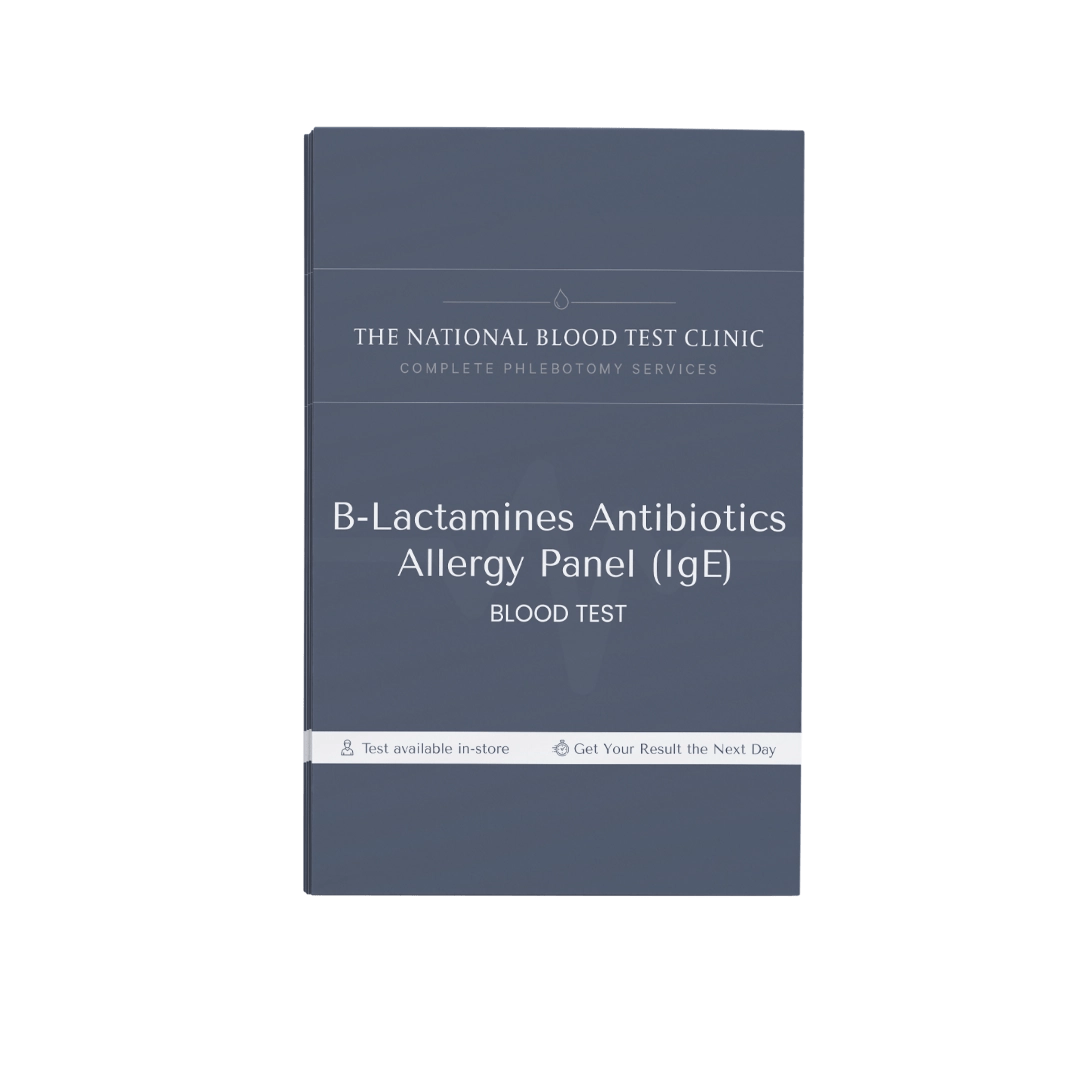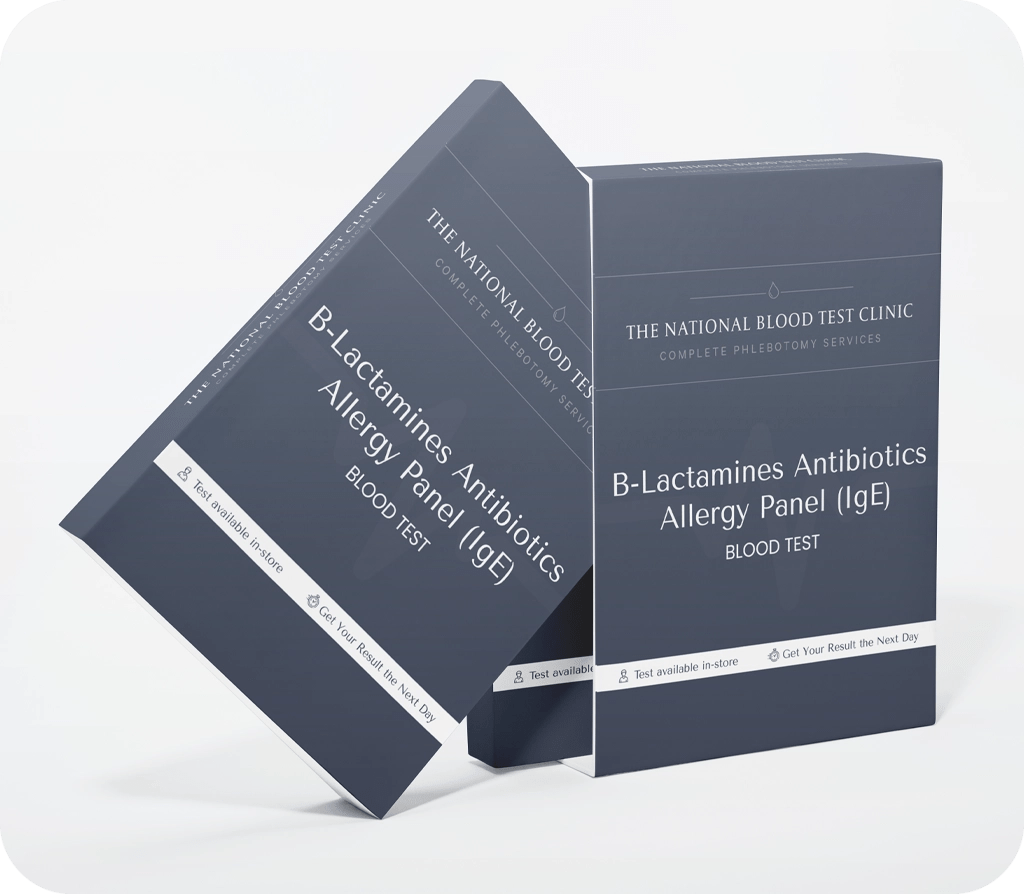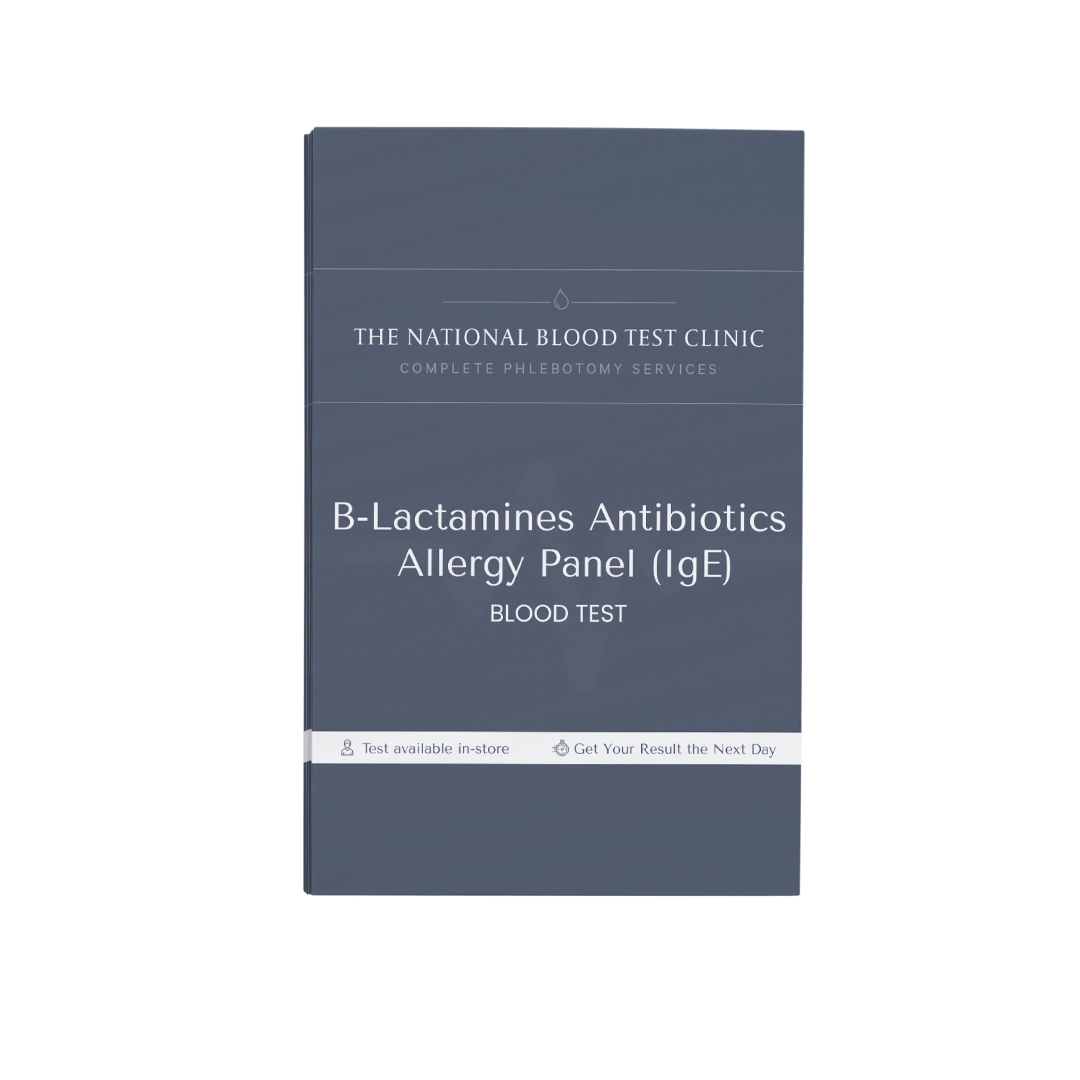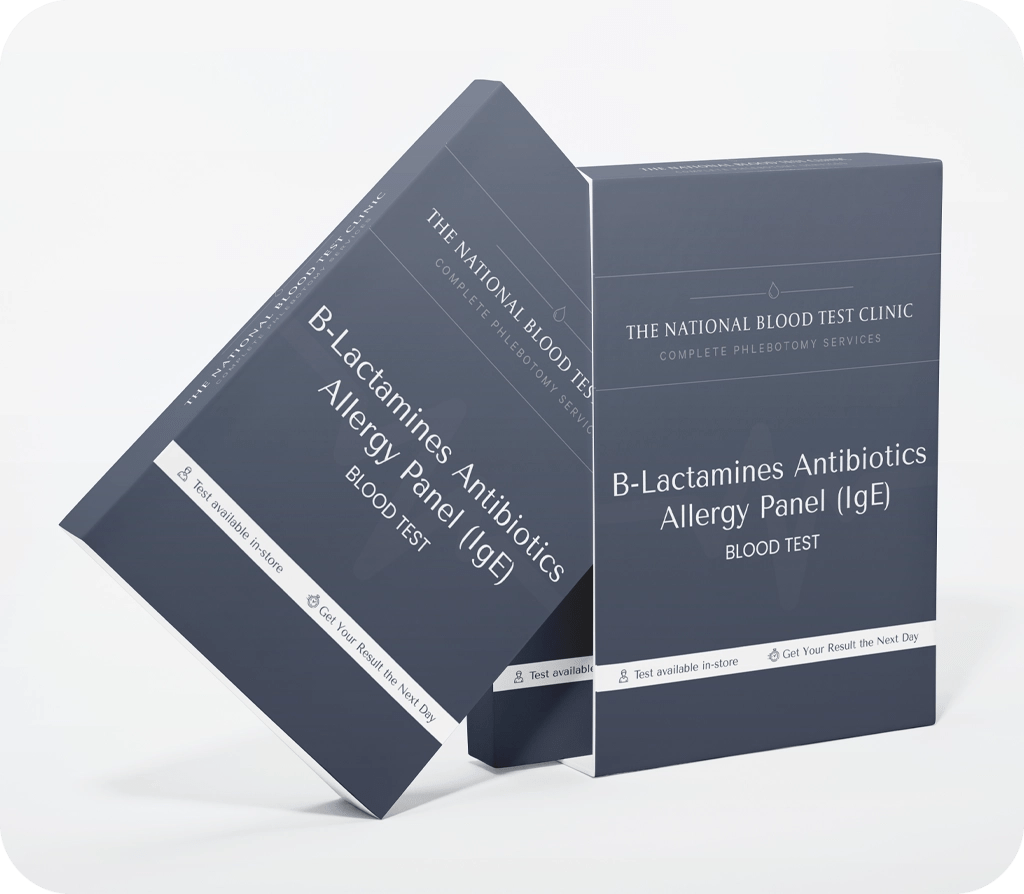My Store
β-Lactamines Antibiotics Allergy Panel (IgE)
β-Lactamines Antibiotics Allergy Panel (IgE)
SKU:ALL18
Allergic reactions to antibiotics can cause rashes, hives, swelling, or, in severe cases, life-threatening anaphylaxis. This β-Lactamines Antibiotics Allergy Panel identifies IgE-mediated sensitivities to commonly prescribed β-lactam antibiotics, including penicillins and cephalosporins. It is particularly important for patients with suspected drug allergies to ensure safe prescribing and to avoid unnecessary avoidance of essential treatments.
Why β-Lactamines Antibiotics Allergy Assessment Matters?
Antibiotic allergies are often over-reported, leading to restricted treatment options and reliance on second-line drugs. By identifying true IgE-mediated allergies, this test helps distinguish between intolerance and genuine hypersensitivity. Early detection ensures safer prescribing, optimises treatment choices, and reduces the risk of severe allergic reactions.
What Gets Assessed?
- Penicillin G
- Penicillin V
- Ampicillin
- Amoxicillin
- Cephalosporin mix (Cefaclor, Cefaxin, Cefotaxim, Cefuroxim)
Turnaround Time
- 11 Days
100 in stock
Visit a partner clinic (+£50)
Once you've ordered your test, look out for an email from our phlebotomy partners containing information and a link to book your appointment. We'll send you everything the clinic will need to complete the sample and post it back to our labs.
Organise a nurse yourself
If none of the above options work for you, you can arrange your own medical professional to collect your sample. There is no additional charge for this. Once you've ordered your test, we'll send you everything you and your chosen medical professional will need to collect a sample and post it back to our labs.
Couldn't load pickup availability
Enter Your Details


Visit a partner clinic (+£50)
Once you've ordered your test, look out for an email from our phlebotomy partners containing information and a link to book your appointment. We'll send you everything the clinic will need to complete the sample and post it back to our labs.
Organise a Nurse Yourself
If none of the above options work for you, you can arrange your own medical professional to collect your sample. There is no additional charge for this. Once you've ordered your test, we'll send you everything you and your chosen medical professional will need to collect a sample and post it back to our labs.
How Our Test Works
-

Place Your Order
Place your order online and receive a test kit delivered to your home. You’ll need to bring this kit with you to your scheduled appointment at one of our partner blood collection clinics.
-

Attend Your Appointment
At your chosen clinic, a trained nurse or phlebotomist will collect your blood sample using the kit you bring. If a sample collection courier is not available at the site, you’ll be asked to take the sealed sample with you and post it using the prepaid packaging provided.
-

Receive Your Results
Once your results are ready, you’ll receive an email notification to log in and view them securely via your private portal. Please note: venous blood test results are not automatically reviewed by a doctor. We recommend booking a consultation with a qualified clinician to help you interpret and understand your results fully.
FAQs
Who should consider this test?
This test is recommended for individuals who have experienced allergic reactions such as rashes, hives, breathing difficulties, or anaphylaxis after taking antibiotics like penicillin or cephalosporins.
Which allergens are included in this panel?
The test measures IgE antibodies to common beta-lactam antibiotics including Penicillin G, Penicillin V, Ampicillin, Amoxicillin, and a cephalosporin mix (Cefaclor, Cefaxin, Cefotaxim, Cefuroxim).
How is the test performed?
A simple blood sample is collected and analysed in the laboratory to identify any IgE-mediated sensitivity to these antibiotics.
What do the results mean?
The results indicate whether your immune system shows allergic sensitivity to one or more beta-lactam antibiotics, helping to confirm a suspected drug allergy.
Can this test guide treatment options?
Yes, the results can help healthcare professionals decide whether certain antibiotics should be avoided and suggest safe alternatives.
Subscribe to our emails
Be the first to know about new collections and exclusive offers.





